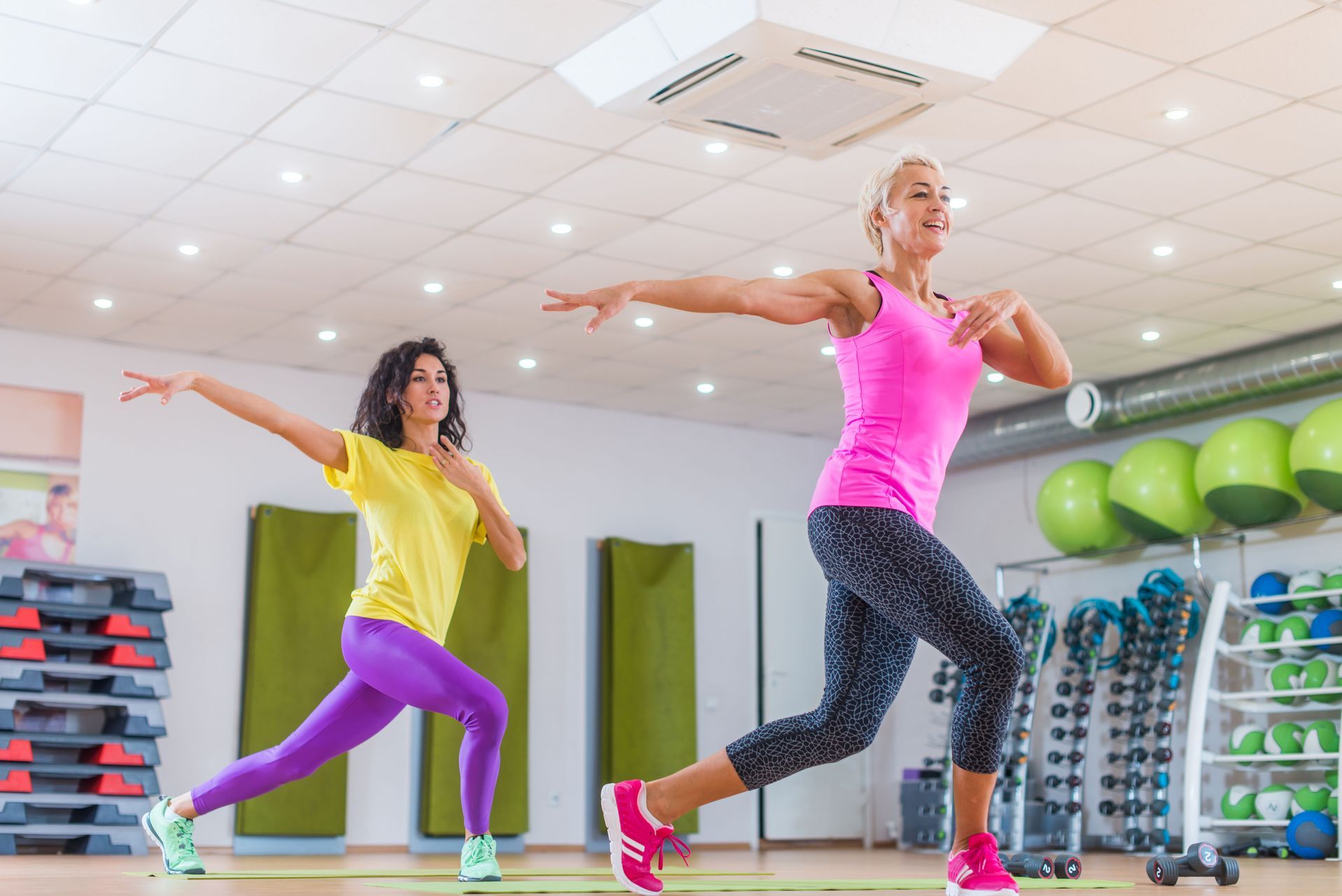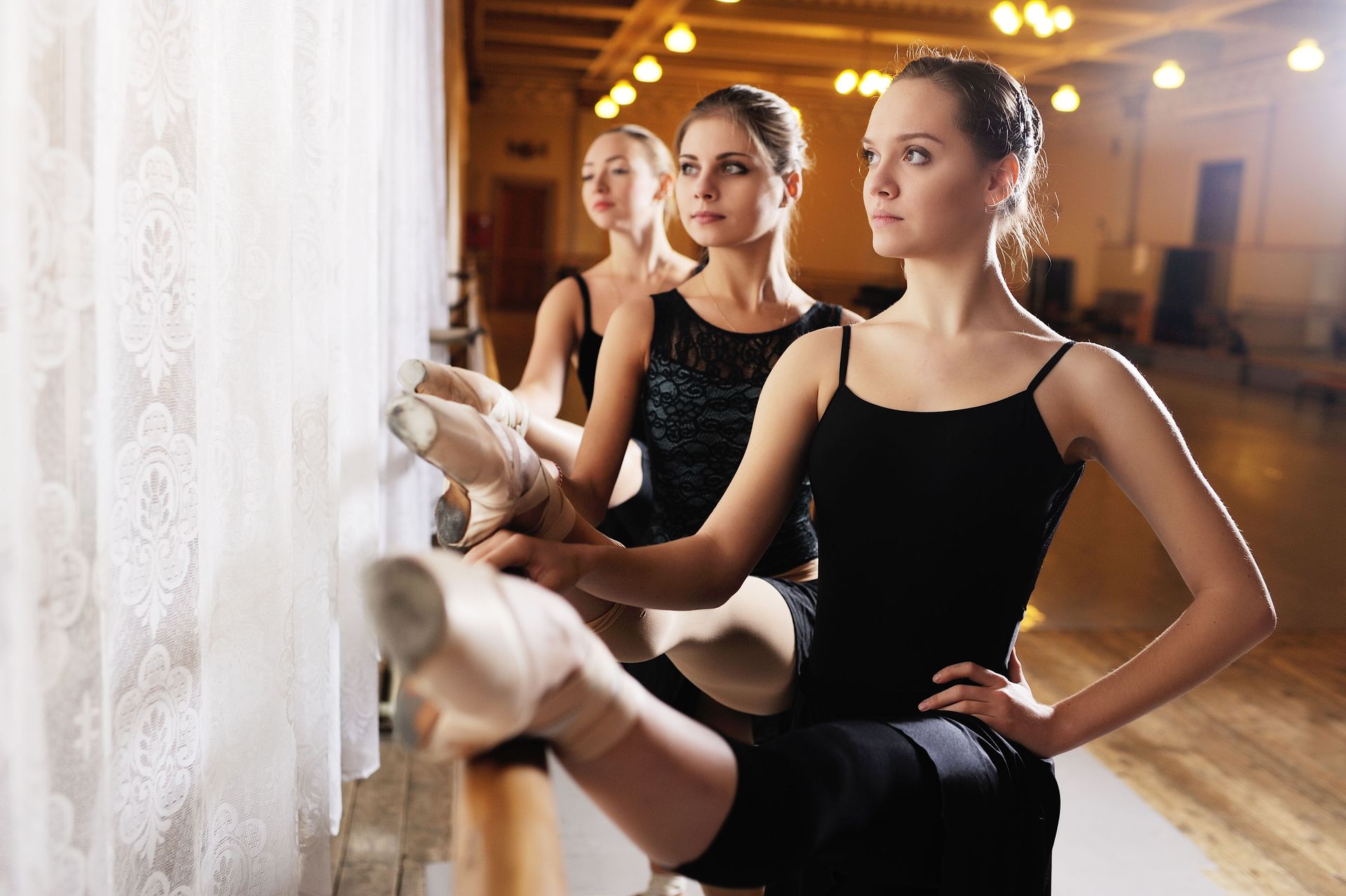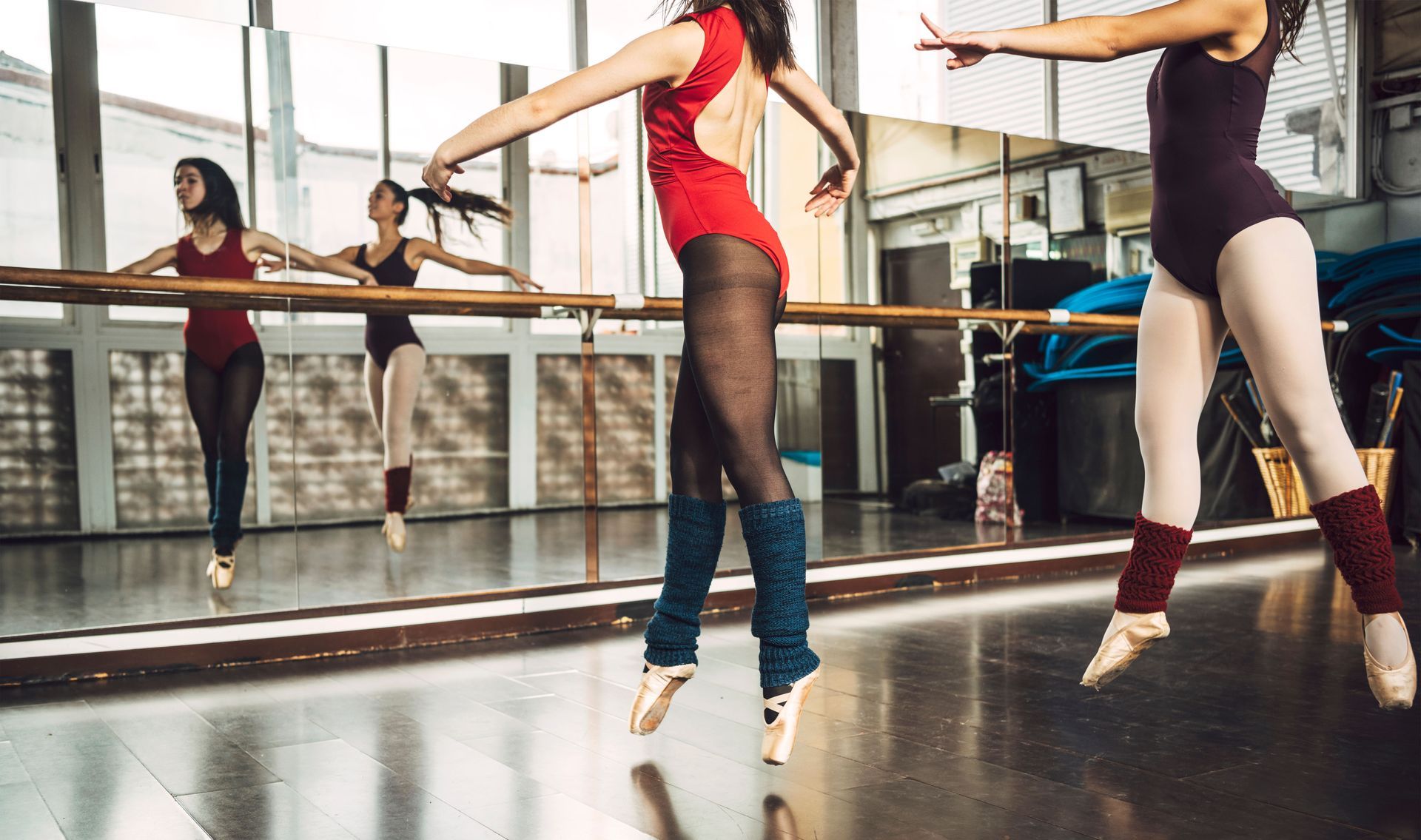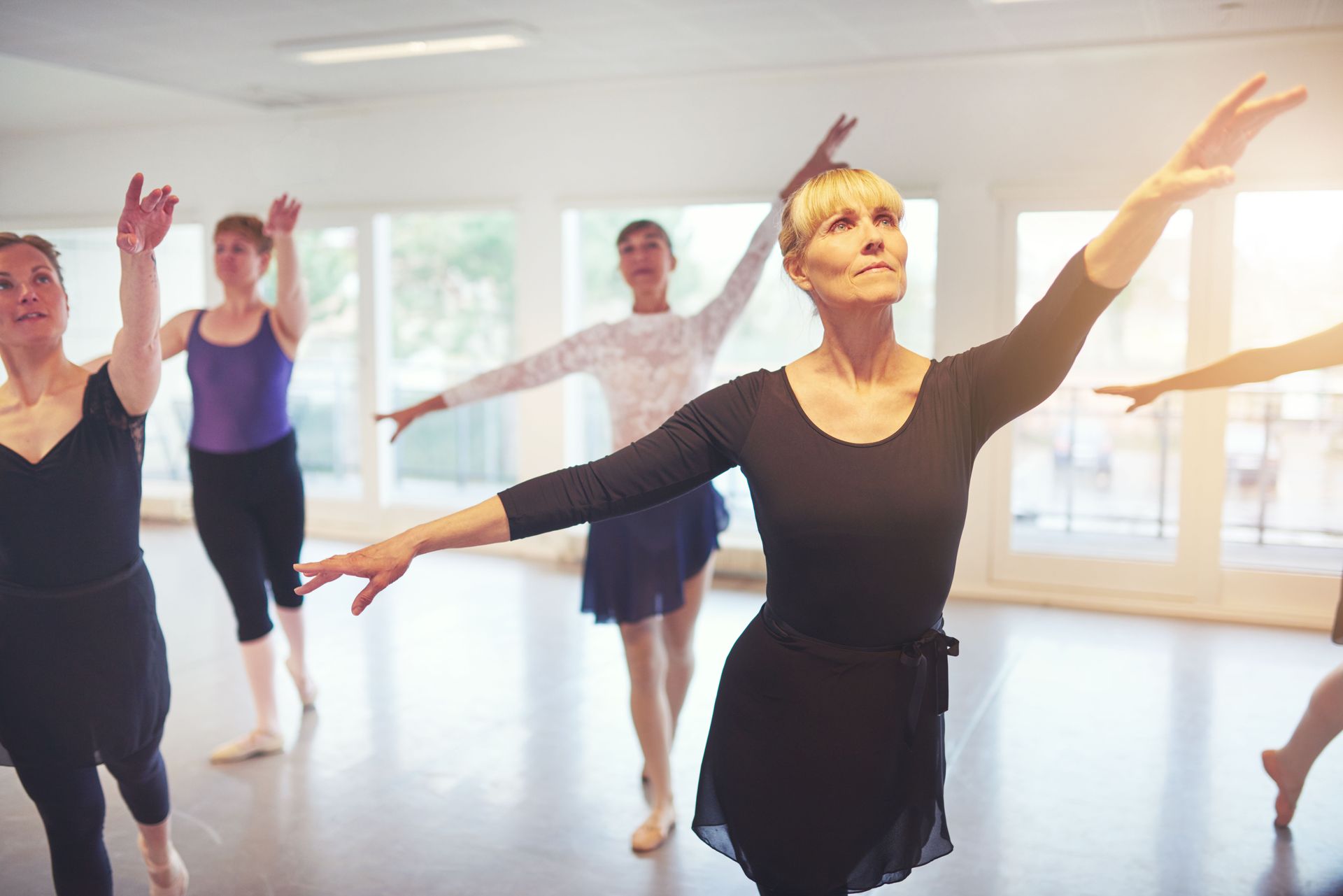November 14, 2025
Dance has long been celebrated as a form of artistic expression, physical exercise, and social engagement. But beyond its aesthetic appeal and fitness benefits, dance offers profound effects on mental health and emotional well-being. From reducing stress to boosting mood and cognitive function, the rhythmic movement and creative freedom involved in dance can help individuals achieve a healthier mind. In particular, adult dance classes provide a structured yet enjoyable way for people of all ages to experience these mental wellness benefits. This article explores how dance supports mental health, the unique advantages of dance classes, and why incorporating dance into your routine can be transformative.
Experience the Mood-Boosting Effects of Dance
One of the most immediate benefits of dance is its positive impact on mood. Engaging in rhythmic movement stimulates the release of endorphins and dopamine, chemicals in the brain associated with pleasure and reward. This natural chemical response can create a sense of euphoria, reduce feelings of anxiety, and foster emotional resilience.
According to research conducted by UCLA Health, dancing improves the mood of 98% of dancers polled. This statistic highlights the nearly universal effect dance can have on lifting spirits, making it an effective tool for anyone looking to enhance their emotional state. Whether it's a lively salsa routine, a calming contemporary piece, or a structured adult dance class focused on ballroom techniques, the physical act of moving to music offers a reliable way to boost mental well-being.
Strengthen Cognitive Function Through Movement
Dance is more than just a physical exercise—it is a mental workout. Learning choreography, memorizing steps, and coordinating movements challenge the brain in unique ways. This combination of mental and physical engagement promotes neuroplasticity, which is the brain's ability to form new neural connections.
Dance classes often include sequences that require participants to recall complex patterns, anticipate timing changes, and synchronize with a partner or group. These mental demands improve focus, memory, and cognitive flexibility, making dance an excellent activity for individuals seeking to enhance brain function. Studies suggest that dance can help slow age-related cognitive decline, which positions it as both a preventative and therapeutic practice for long-term mental health.
Reduce Stress and Anxiety Through Regular Practice
Stress and anxiety are common mental health challenges that many adults face daily. Dance offers a natural outlet for releasing tension and processing emotions. When the body moves rhythmically to music, it triggers the parasympathetic nervous system, which is responsible for relaxation and reducing stress hormones such as cortisol.
Participating in adult dance classes provides a structured environment to engage in this stress-relieving activity. Classes often include warm-up exercises, stretching, and mindful breathing techniques alongside dance routines. These elements combine physical movement with mental focus, creating a meditative experience that helps individuals manage stress and feel calmer in their daily lives. Over time, the routine of attending classes can instill a sense of accomplishment and stability, further reducing anxiety levels.
Build Social Connections and a Sense of Community
Human beings are inherently social creatures, and social interaction is a key component of mental wellness. Dance is inherently communal, whether performed in a group class, a partnered dance, or a performance setting. Participating in adult dance classes can create opportunities to meet new people, foster friendships, and feel a sense of belonging.
Social engagement in a supportive environment contributes to improved mental health by combating feelings of isolation and loneliness. For many adults, these classes offer not only an avenue for exercise and creative expression but also a space to connect with like-minded individuals. Sharing laughter, challenges, and successes with others while learning to dance enhances self-esteem and promotes a positive outlook on life.
Enhance Self-Expression and Emotional Awareness
Dance is a powerful medium for self-expression, allowing individuals to communicate emotions and stories through movement. Unlike verbal expression, dance transcends language, providing a non-verbal outlet for processing feelings. This is particularly beneficial for adults who may struggle to articulate emotions or feel constrained in traditional forms of self-expression.
Dance classes often encourage participants to interpret music creatively, experiment with movement, and explore personal style. This form of expression not only nurtures creativity but also cultivates emotional awareness. By connecting with their inner feelings and externalizing them through dance, individuals can gain insights into their emotional landscape, release pent-up emotions, and experience a sense of emotional liberation.
Improve Physical Health for Mental Benefits
The connection between physical health and mental well-being is well-established, and dance is a uniquely effective activity that combines both. Engaging in regular dance routines improves cardiovascular fitness, strengthens muscles, enhances flexibility, and boosts overall energy levels. These physical benefits translate directly into mental health advantages.
Exercise, including dance, increases blood flow to the brain and stimulates the production of neurotransmitters that combat depression and anxiety. Adult dance classes provide a safe and guided way to achieve these physical benefits, while the rhythmic and enjoyable nature of dance makes it easier to maintain a consistent routine compared to traditional forms of exercise.
Encourage Mindfulness and Present-Moment Awareness
In today’s fast-paced world, adults often struggle to stay present amid constant distractions. Dance naturally cultivates mindfulness, as participants must focus on rhythm, coordination, and timing. Being fully immersed in the movement and music encourages a state of present-moment awareness, which has been shown to reduce stress and improve emotional regulation.
Adult dance classes often integrate mindful techniques, such as concentrating on breath, posture, and precise footwork. By practicing mindfulness while moving, dancers can achieve a meditative state that enhances mental clarity and emotional balance. Over time, this heightened awareness can extend beyond the dance studio, helping individuals approach daily challenges with greater focus and calmness.
Explore Creativity and Personal Growth
Engaging in dance nurtures creativity and fosters personal development. Adult dance classes provide a safe space to experiment with movement, try new styles, and develop individual expression. This sense of creative freedom is closely linked to improved problem-solving skills, innovation, and confidence.
The process of learning and mastering new routines builds perseverance and adaptability, reinforcing mental resilience. As participants gain confidence in their abilities and explore different styles, they often experience a boost in self-esteem and personal satisfaction. Dance becomes more than a hobby; it becomes a path toward growth, self-discovery, and enhanced mental wellness.
Foster Long-Term Mental Health Habits
The benefits of dance extend beyond immediate mood enhancement — they contribute to sustainable mental health practices. Regular participation in adult dance classes encourages consistency, discipline, and self-care. Attending classes becomes a proactive way to prioritize mental and emotional well-being in daily life.
Additionally, dance often inspires a broader interest in overall wellness, such as nutrition, mindfulness, and other forms of physical activity. By establishing a long-term commitment to movement, social engagement, and self-expression, adults can maintain balanced mental health and resilience against life’s challenges.
Dance offers a multifaceted approach to enhancing mental wellness. Its combination of physical activity, social connection, emotional expression, and cognitive engagement makes it a uniquely effective tool for improving mood, reducing stress, and fostering overall psychological well-being.
Whether seeking a way to boost mood, enhance cognitive function, reduce stress, or explore self-expression, dance offers a rich pathway toward holistic mental health. By incorporating dance into your routine, you can experience the transformative power of movement and rhythm, connecting both body and mind in meaningful and lasting ways. If you’re ready to start your journey toward improved mental wellness through dance, reach out to Pennsylvania Academy of Dance Arts today!






